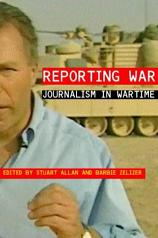Yesterday the handoff of the Olympic flame from one repressive regime to another went smoothly. While China ended its Olympics with an impressive display of old skool mass drill, Britain opted for a more modern theme, showcasing a celebrity front against a background of aspiring –and cheap– student dancers and the like. The level of drilling needed for Britain’s eight minute presentation is of course of the same level as that of China, just appearing more relaxed. It’s a good metaphor for the differences in approach to politics in the two states, the Chinese still having a no-nonsense, heavyhanded style of dealing with dissent, while the British offer authoritarianism with the fake smile of the Argos salesperson desparate to meet his target. However the two countries are converging in their approaches, as Alex discusses:
It’s so familiar; the insistence that anyone who disagrees is doing so out of spite, that only acquiescence is “serious” or “helpful”. I’m surprised he didn’t offer them a Big Conversation, but in fact, with the right mistranslation he might have done. Similarly, the re-education through labour order for disturbing the public is just a translator’s caprice away from an anti-social behaviour order.
Perhaps there’s a wider truth here; this sort of events/urban regeneration politics seems to follow the same grammar all over the world. It’s conceived of as a project; which implies there are only participants, or else obstructions. Despite the money and the bulldozers, it respects
class boundaries; veering around the villas of the rich. It needs special security arrangements which always turn out to involve some sort of summary justice based on vague and unchallengeable notions of appropriateness, propriety, or order; similarly, these are always temporary but are never revoked. The state authorities and private interests involved are indistinguishable. (Interestingly, the legislative foundation tends to be very hard to get rid of; the Act on the Great Exhibition of 1851 is still in force and still a major headache for anyone planning to build on or near the original site.)
We saw how ruthless China dealt with everything that threatened to disrupt the Olympics, from smog to Free Tibet protests, it will be interesting to see how the British authorities do. They’ll have an easier time of it of course, because the western media aren’t already inclined to be hostile to them in the way they are to the proven “totalitarian” regime in power in China. Britain after all is still a democratic country Unfortunately, as Jamie wryly noted, China is actually liberalising slowly while Britain is going the other way, recognising each other as they pass.
Britain these days is a country where you can be arrested and sentenced not for being a terrorist, not for helping terrorists but just for writing poetry “glorifying terrorism and where innocent Brazilian electricians can be murdered by the police in broad daylight with his killers escaping justice. Let’s not even talk about the warcrimes the country is involved in abroad, in Afghanistan and Iraq. At least China isn’t involved in hanging on the coattails of dodgy American imperialistic ventures…
Plenty of reasons to boycott the 2012 Olympics as effectively as y’all did the 2008 ones, no?
